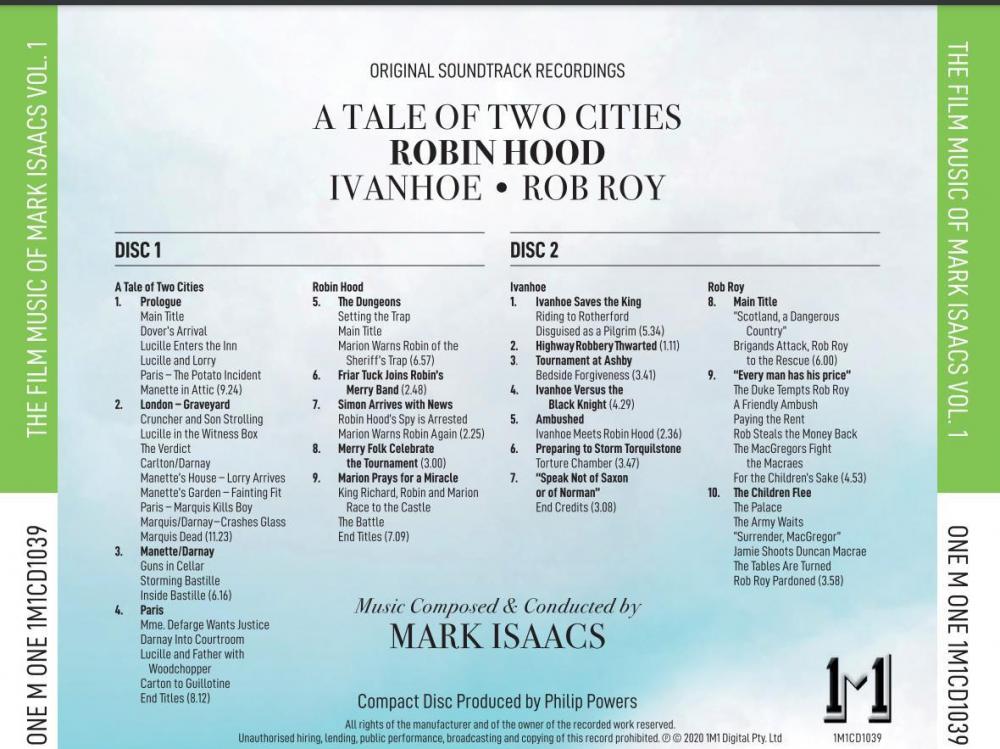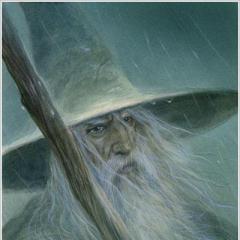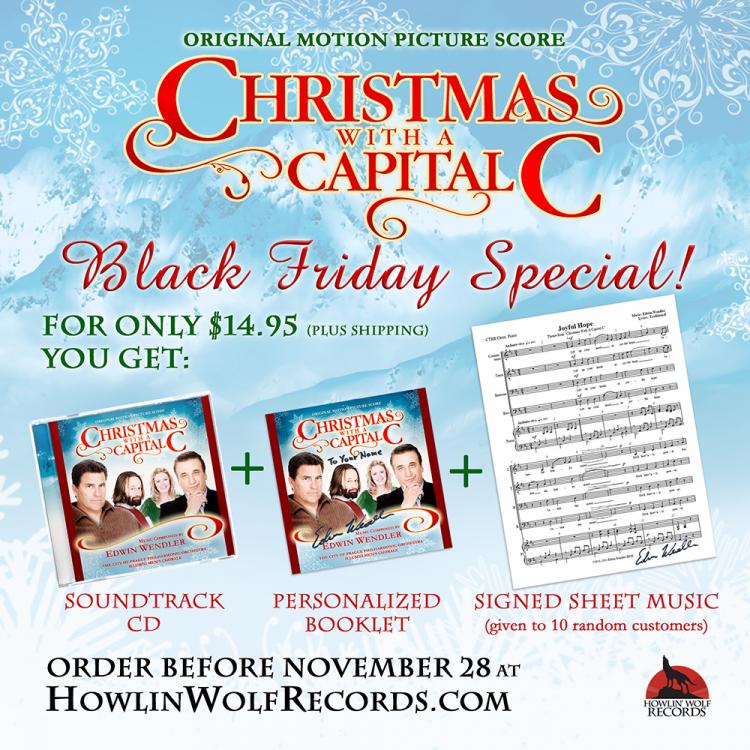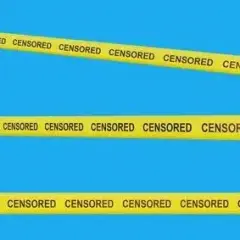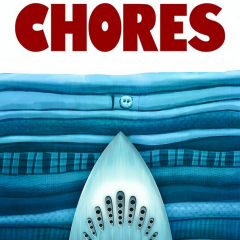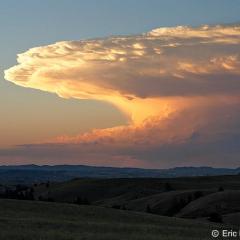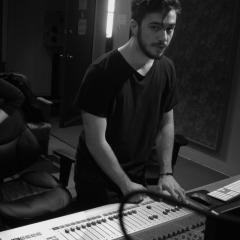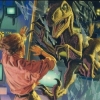Search the Community
Showing results for tags 'soundtrack'.
-
Since we're likely not getting officially released versions of the complete soundtracks from Star Wars Episodes I-III, VII-IX for at least the next few years (or not at all), I've decided to start making what I imagine those soundtracks would be like if released. I've always loved the 1997 Special Edition releases of the Original Trilogy soundtracks, because they were mostly complete (way better than the OSTs anyway), featured the cues in chronological order, and put them together into longer tracks. Because I'm not going to have my Star Wars albums contain giant lists with over 50 minute-long tracks. NOTES: This is a WORK IN PROGRESS. I'd love suggestions on better track names/better edits. I've tried to combine the cues together as best I can, so there wouldn't be too many awkward transitions. Additionally, I am placing the concert suites at the beginning, because I never liked how they showed up at the beginning of the second disk on the Special Editions, which puts them in the middle if you combine both disks into 1 album. I have the list of tracks with their times, names, and respective cues here: https://docs.google.com/document/d/1_CHSV283gXWoIMITVUwXYjr2f8AtpTXeqM9h0GwoZ7U/edit?usp=sharing If anyone has a track they would like for me to share, I can send it in this post; I just don't want to upload like 60 tracks right now Feedback on names and better places to edit (because i"m bothered by how long some of these are, but seperating the cues makes them too short) would be greatly appreciated.
- 11 replies
-
- Soundtrack
- John Williams
-
(and 3 more)
Tagged with:
-
I originally got all my Star Wars music from the public library and listened to it off of their CDs for a while. The problem is, the library only had the 1997 Special Edition soundtrack releases for the Original Trilogy, but the Prequel and Sequel soundtracks were the highly edited versions that are widely used. I enjoy having all the extra music in the Special Editions, but it bothers me that a 3rd of my Star Wars music is more expanded on than the rest. I've gotten used to the longer, edited versions of the Prequel and Sequel soundtracks, and to the more complete versions of the OT Special Editions. So should I make the downgrade to the originally released OT soundtracks for consistency, or should I fix the rest of my music to be more complete? (this would be a pain especially with the sequels, ESPECIALLY with TROS).
- 65 replies
-
- John Williams
- Original Trilogy
-
(and 2 more)
Tagged with:
-
Hi everyone, The music during the Diagon Alley scene in the Philosopher's Stone movie IS NOT the same as the track named "Diagon Alley and the Gringotts Vault" in the soundtrack album of the movie. Does anybody know if the music of the movie scene is available somehow? Thank you for any info about it.
- 29 replies
-
- soundtrack
- Harry Potter and the Philosophers Stone
- (and 1 more)
-
Thank your for answering.
-
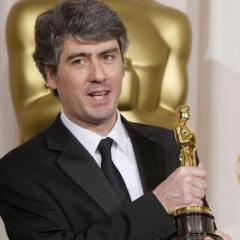
Composer Threads The Official Dario Marianelli Thread
Alessoundtrack posted a topic in General Discussion
This is a GREAT Score!- 68 replies
-
- Film Scoring
- Dario Marianelli
-
(and 4 more)
Tagged with:
-
Hello everyone, even though I've been secretly reading this forum for years, this is my first post and I'd like to start with a review of a quite recently released compilation of rather obscure film music, even for a long-time film music fan like myself. "The Film Music of Mark Isaacs Vol. 1" is a 2-disk set released by Australian soundtrack label 1M1-Records in April 2020. It is a compilation of four nowadays more or less unknown cartoon scores from the 80s. A short introduction to the composer, who is unfortunately rather unknown for most folks around here I'm afraid: Mark is both a trained jazz pianist as well a studied classical symphonist, and his concert works (including two symphonies) remarkably combine European compositional techniques of the late 19th century with subtle jazz elements, but there are also influences of New Music (especially free tonality, expressionism, etc.). For his relatively short excursion into the field of film music during the 80's and early 90's, however, Mark was mainly guided by classical golden age scores in the style of Korngold and Steiner. However, he has developed a refreshingly independent tonal language in which – despite the respective historical setting – a bit of jazz yglamour shines through... like some well-placed seventh chord or fanfares with swing-like ternary rhythms. Film music of this kind, although written children's films, is not something you find every day. Now to the four individual suites compiled by 1M1: A Tales of Two Cities: Mark's first film music ever is also his most avant-garde on this compilation. He uses a very large orchestra in all its timbres, including alternative playing techniques such as Col legno in the strings, pitch bending on the timpani, etc. Nevertheless, the music remains strongly influenced by leitmotifs, which helps attentive listening and gives the score in some parts even some Wagnerian moments. The passages for the courtly scenes, however, are more reminiscent of Elgar. Even though I do not want to understate the music in any way, this score is the least tangible of the four for me, personally. Perhaps this is also due to the rather dark/tragic setting of the Dickens story (Robespierre's reign of terror after 1793). The Adventures of Robin Hood: The music for this 1985 Errol Flyy-inspired animation is clearly based in the swashbuckling genre and, if it comes to me, is together with Ivanhoe the strongest of the four suites. The entire suite is dominated by a heroic theme reminiscent of Korngold. In 22 minutes, this easily delivers everything you could ask for from a swashbuckling adventure score about castles, knights and sword fights. Also pleasant are the quieter passages, which utilize flutes, lyres and hand drums (in the recording probably rather acoustic guitars) to create a pseudo-authentic medieval market feeling. Ivanhoe: Basically I like Ivanhoe as much as Robin Hood after listening to this score for the second time. Both suites glide wonderfully into each other. No wonder, since they share the same setting. wink This is most obvious in the track "Ivanhoe Meets Robin Hood", which quotes Robin's main motif from the previous score in a musically very interesting way. Hm, what could be the reason for this? For film music fanboys, the fanfare associated with King Richard with two quart jumps right at the beginning might sound a bit familiar, as it somehow creates a certain spaced-out feeling, like going on a Star Trek or something Rob Roy: Strictly speaking, this last suite is probably the weakest of the compilation, but considering the brilliant music here, that doesn't mean anything at all! There's a much smaller orchestra, rather entertaining humorous mini-cues strung together and more or less clichéd cartoon-like orchestrations. But because of the Irish-Celtic influences (actually it should be Scottish, I think big :D) especially in the accompaniment the whole thing gets a lively folkloric drive and climbs up to a majestic final fanfare with "Rob Roy Pardoned". A worthy finale! Conclusion: A very worthwhile album by former "part-time" film composer Mark Isaacs with great adventure-film music. Especially score enthusiasts, who like me have been "in business" for a while and urgently need new, previously unknown material, and who can hum all the main themes of the likes of Goldsmith, Williams or Horner in their sleep, should seize this opportunity. Even if you have to expect a delivery time of two to three months for orders from Australia, it's definitely worth the wait! Best regards from Germany, Dustin
- 2 replies
-
- Mark Isaacs
- Film music
-
(and 3 more)
Tagged with:
-
Yes, why don't they? Just listen to Imperial March from the ESB "https://www.youtube.com/watch?v=jLmUgeHc2tw" (background sounds can't be removed) and if you can hear well you can conclude that this isn't the same bad quality version that we got on the album... I really wish they would one day release original movie mix of Imperial March and ROTS Duel of the Fates version which had different choir from TPM version.
- 8 replies
-
- Soundtrack
- original
-
(and 1 more)
Tagged with:
-
Hi everybody, I recently had the chance to write the score for a short film called HERO and record it with the City of Prague Philharmonic Orchestra. The directors wanted a "good old fashioned 80s/90s orchestral score" but apart from that gave me complete creative freedom which is a rare and amazing experience for any composer. You can listen to the result here: Looking forward to your comments! Cheers, Robin http://www.robin-hoffmann.com/
- 4 replies
-
- orchestra
- soundtrack
-
(and 1 more)
Tagged with:
-
Agatha Christie’s Poirot Music composed, orchestrated and conducted by Christopher Gunning Christopher Gunning is a British composer, who is relatively unknown to the larger film music fandom, but whose career spans several decades of film and television music, over 100 scores and a considerable repertoire of concert works. The composer has received recognition for his work and awarded with numerous British film music accolades including several BAFTAs (the last win was for La Vie en Rose/La Mome Piaf) but his career has firmly stayed in British Isles and working on British films and television productions instead of travelling to Hollywood, which might explain his relative obscurity to the larger public, which is a shame as he is a composer of indelible ability and passion and skill. One of Gunning’s most popular and enduring creations has been for television, the scores for the adaptations of Agatha Christie’s novels featuring her most famous character, the Belgian detective Hercule Poirot with incomparable David Suchet in the title role. Gunning was hired for the series in 1989 and stayed as the show’s composer-in-residence until 2005, when a new production company took over and during this time composed some 40 odd scores for both the short 50-minute and feature length 90-minute episodes of the series. The varied subject matter of Christie’s detective stories featuring murders, thefts, espionage and a whole host of puzzling mysteries offered the composer a chance to explore it all through colorful musical expression and all of this was to be rooted in a central theme that would capture the capricious, slightly humorous but brilliantly intelligent central character of Poirot, “the greatest detective in the world". Gunning toiled quite a bit before he finally discovered his central theme, the iconic main title music featuring soprano saxophone and which has since become emblematic of Poirot himself and is so well remembered by fans of the show throughout the world. This main theme seems all at once to capture the setting of the stories, the Europe of 1930’s (the series was set around 1936 by the original creators) with its urbane and elegant melody and hint at the turbulent and darker undercurrent of the stories themselves, while also lending a debonair, witty and refined air to the main protagonist with just the right amount of mystery to it. This theme was used by Gunning in most of the episodes in fragments and endless variations that mirrored the mood and disposition of Poirot and the plot as he was solving the conundrums set before him. As mentioned above the mood and style of the scores vary widely because of the events, places and times these plots take place and Gunning takes up the opporturnity to form almost self contained musical worlds for each episode with new themes for the individual stories but everything is tied together by Poirot’s theme and the certain stylistic traits, the moody, tradegy and mystery tinged atmosphere reflected in the orchestrations. The work is mostly orchestral with subtle use of electronics applied here and there for unusual effect and employs numerous soloists besides the saxophone. Gunning's work for the series is intelligent and highly thematic and has a suitably old fashioned orchestral air about it with even lingering hints of film noir in its often mysterious and darkly romantic musical style. As usual for a television production the orchestra was of moderate size, numbering less than 30 players most of the time but the composer’s skill in orchestration and eliciting nuanced and powerful performances from his ensemble add a touch of class to the scores, setting them worlds apart from most TV-music. The music is big, dramatic and thematically driven but without enormous forces behind it. I feel that the chamber sized orchestra works to the benefit of the show in that it doesn't drown the often intimate and small scale of the stories while still retaining enough size and scope to support the biggest scenes in the episodes. Despite the popularity of the show the music from the series has not been widely available. A soundtrack album was issued in 1993 featuring a selection from the first 4 seasons of the Agatha Christie’s Poirot. This was a re-recording that contained suites and concertized themes from several episodes of the series but it soon sold out and became a collector’s item. In early 2013 the composer re-released some of his music from Poirot on a new album on Discovery Music & Vision label that contains selections from the previous re-recording album but adds several new tracks to the programme from the newer episodes, which are all taken from the actual film recordings. This release at last gives the film music audience a new chance to explore Mr. Gunning’s wonderful music for Poirot. The album opens with an extended performance of the main theme in The Belgian Detective featuring sultry and dexterous saxophone solo by Stan Sulzmann, who was the “voice” of Poirot through the entire run of Gunning’s association with the show. The piece presents a series of variations on the main idea and casts the saxophone in central role, not only in this piece but also in the soundscape of the whole series, the voice of the times, place and character. This theme is part of nearly all the episodes in some way and accompanies the main character much of the time while he is on-screen and thus it can also be heard making appearances on many of the tracks on the album. As majority of the stories take place in England, the composer explores many allusions to British musical tropes in his scores. The pastoral A Country Retreat (from The Mysterious Affair at Styles) with lovely clarinet and viola solos paints a sunny and carefree idyll of British countryside and the gentle folk song stylings of To the Lakes! (from the opening episode of the series The Adventure of the Clapham Cook), where lilting strings and solo clarinet conjure a lyrical portrait green rural England with hints of Poirot’s theme thrown in for humour as the thoroughly urbane character can’t actually stand the untidy and disordered countryside. Some welcome humour and lightness of touch is also heard in The Height of Fashion (from A Wasp’s Nest) which presents a breezy and jazzy 1930’s styled saxophone solo over urbane orchestral accompaniment that simply shouts snooty worldly elegance of the times. Gunning also created an independent secondary theme for Poirot’s mental powers of detection heard in a long concertized version Grey Cells, which is derived from the main theme, where the saxophone once again takes the lead role in a smoky and mysterious exploration of the idea, which is heard in the series whenever the Belgian sleuth is solving the crime, thinking and pondering alone. The constant repeating motion of the motif seem to evoke a more moody side of the character, the hint of dark elegance and melancholy inherent in his persona. This same melancholic atmosphere infuses The Double Clue, but here it is of Slavonic origin as Gunning creates a passionate piano and saxophone led love theme for Poirot and the Russian aristocrat (and jewel thief), countess Vera Rossakoff, the piece full of longing and bittersweet romance as the two characters are diametrically opposed but share a mutual admiration for each other. The series offered the composer fair share of chances for heightened drama, where the music carried the implications of the murders and led the action and enhanced foreboding and suspense and was allowed to be bold and larger than life. Good examples of this come from music of The Mysterious Affair at Styles when the composer introduces a brooding melody on track called War that originally underscores the curtain raising scene where captain Hastings, Poirot’s friend and associate, is recovering from war wounds in a military hospital during WWI but later we realize that this music actually represents not war but murder when Gunning transforms it into the agitated and frenzied death throes of an old rich woman in The Death of Mrs. Inglethorpe. Similarly the ABC Murders grows from the simple ominous basis of the notes A-B-C repeated in various orchestrations into a forceful musical hunt that keeps building as Poirot and Inspector Japp try to catch a devious serial killer. The Victory Ball features solo cello but the tension is built not on fast pace or thunderous orchestrations but rather on a languid yet threatening melody that winds ever on in smoky register punctuated by rhythmic jabs of piano and xylophone for suspense. Agatha Christie often chose English nursery rhymes or children’s poems as the titles of her novels and short stories. Christopher Gunning likewise chose to incorporate these rhymes into his music, and if there was a melody, to integrate it in the underscore as well. Two examples, One, Two Buckle My Shoe and How Does Your Garden Grow can be found on this album. One, Two Buckle My Shoe is a ghostly piano and whispering children’s chorus evocation of the English hopscotch rhyme, that underscores a brutal murder and forms a good part of the underscore of the episode in question. How Does Your Garden Grow is a long suite from the episode of the same name, where a Russian au pair is suspected of murdering her employer in hopes of inheritance. The music is a mix of highly dramatic and romantic Slavonic colourings interspersed with playfully orchestrated interpolations of the children’s rhyme melody and the violent orchestral convulsions of snarling brass and keening strings for the murder of the old rich woman and some exciting scoring for the capture of the real villains of the story, the whole suite bookended by dapper quotes of the Poirot Theme. The new additions to the album’s programme are three selections from 2004 episodes of the series. The Innocence of Caroline Crale (from the episode Five Little Pigs) carries childlike simplicity in its sad, halting piano melody full of nostalgia and sense of loss, a warm and affecting piece that still ends mid-phrase to imply a tragic conclusion to the tale. Amyas’s Last Painting (also from Five Little Pigs) is a mix of supremely lyrical clarinet and violin led melodies and drivingly intense rhythmic music for scenes where an obsessed artist feverishly paints a portait of a young woman unaware that she has in her jealousy poisoned him. It is a wonderfully inventive, beautifully flowing and balanced piece with two entirely contrasting moods mixing effortlessly. The final new piece, a suite from Death on the Nile, also contains the only example of the album of the more exotic music composed by Gunning for Poirot’s numerous adventures abroad. The suite opens with a delicious fatal sounding musical allusion to the Near East before settling in on a very tragic love theme for two of the main characters of the story. Soon follows some faux-Arabic travelling music for the river boat Karnak that goes into the various supenseful and intense cues for mysteries and murders on the luxury-boat (with a fun homage to Bernard Herrmann's Psycho) and the suite wraps up with dramatic, tragic and ominous musical evocations of the finale of the film, all done with supreme confidence, sense of melody and drama by the composer. The 2013 album is well put together with welcome additions of new music from the 2004 episodes. Gunning also had to excise two tracks from the old programme of the 1992 album, The Plymouth Express and Death in the Clouds, to make room for the music from his newer work. This of course is unfortunate but at least to me the inclusion of the new music more than makes up for the loss. The sound quality is top notch and the performances are nuanced with solo instruments, saxophone, piano, clarinet, cello and various others shining in the recording. Christopher Gunning himself provides informative liner notes where he not only tells how he became associated with the series, how his famous main theme came together and how he and the producer Brian Eastman slowly worked on the musical style of Poirot but also gives short track-by-track commentary on the music. The 2004 pieces were recorded with an audibly larger orchestra (the Slovak Radio Symphony Orchestra) but blend well with the overall aesthetic of the sound of Poirot’s world. Also a kudos have to given to how the composer has compiled these effortlessly flowing suites from the underscore of these two new scores presented for the first time on disc. In the final analysis the album is a winning mix of romantic orchestral sensibilities, mystery and suspense. Let’s hope that the composer is inclined in the near future to release more of his music from the series as this album barely scratches the surface of the musical bounties found in the 40 plus episodes Gunning scored for Agatha Christie’s Poirot. Highly recommended to all fans of great orchestral film music and especially to the fans of the show. 5/5 © Mikko Ojala 1. The Belgian Detective 2.30* 2. A Country Retreat 4.53§ 3. The ABC Murders 4.34 4. Grey Cells 4.21* 5. To the Lakes! 2.18 6. The Double Clue 5.09† 7. War 2.29 8. The Innocence of Caroline Crale 5.30± 9. Amyas’s Last Painting 4.22± 10. How Does Your Garden Grow? 9.05 11. The Death of Mrs Inglethorpe 2.27 12. The Height of Fashion 2.08* 13. One-two, buckle-my-shoe 1.58 14. The Victory Ball 4.55¤ 15. Death on the Nile 13:45 * featuring Stan Sulzmann, soprano or alto saxophone § featuring David Emmanuel, viola and Nick Rodwell, clarinet † featuring Leslie Pearson, piano and Stan Sulzmann, tenor saxophone ± featuring Viktor Simcisko, violin ¤featuring Anthony Pleeth, cello Tracks 1, 2, 3, 4, 5, 6, 7, 10, 11, 12, 13, 14: Executive producer, Maggie Rodford/Air Edel Associates Ltd. Recorded and Mixed at the Lansdowne Recording Studios, London 1992 Tracks 8, 9 and 15 Produced by Christopher Gunning Recorded by members of Slovak Radio Symphony Orchestra, Bratislava Mixed at Lansdowne Recording Studios, London August 2004 Link to the composer's site and soundclips from the album
- 12 replies
-
- TV-series
- Agatha Christie
- (and 5 more)
-
None But the Brave Music Composed by John Williams A Review of the Soundtrack Album by Mikko Ojala None But the Brave is a 1965 film and one of Williams' first real dramas and a war story no less, directed by Frank Sinatra, who himself played a supporting role in the picture. It tells the story of American and Japanese soldiers, stranded on a tiny Pacific island during World War II, who have to form a temporary truce and cooperate to survive various tribulations and is told through the eyes of the American and Japanese unit commanders, who must deal with an atmosphere of growing distrust and tension between their men. Film Score Monthly released the score in 2009 for the first time, the album featuring the complete score and even some bonus material and once again credit has to be given to the FSM for their continued interest in releasing and preserving the music from earliest eras of John Williams career. It is fascinating to chart the evolution of Williams' sound and style through his early scores as what you hear is a lot of talent ready to burst into full bloom as it later does but also a sort of learning curve of a composer slowly picking up certain skills of the craft and fine tuning them. However in the case on None But the Brave there is also a good dose of maturity found here. This score exhibits many of Williams' clear stylistic tendencies and gift for melody but perhaps in a slightly reduced or muted format than in many of his later scores. On album the score forms quite a strong listening experience though perhaps requires a bit more patience than your average JW soundtrack. John Williams has always been a writer of memorable melodies and his main theme for the score certainly is a good example of this, a heroic, resolute but pensive melody often heard on solo brass but he weaves it through many orchestrational variations and uses fragments here and there to tie the score together. The film is not out to glorify war and Williams' somber theme and its rather sparse usage reflect that in an admirable way, the theme being a form of musical solace between the tragic and suspenceful elements in the music. Main Title and Kuroki's Introduction presents the main idea in an almost formal heraldic fashion, but we hear also another important idea in passing here, namely Kuroki's Japanese styled motif, very faux oriental progression on flute almost archetypical you could say, which is later explored in a more thorough fashion, the idea revealing more emotional depth later on in cues like Kuroki's Reflection and The Dream of Hope Is Ashes / Hirano's Problem. These two form the opposing musical sides of the story but in the end the composer uses the main theme for both the Americans and the Japanese, their tragedy of war itself becoming one and the same. That said the score might not feel straightforwardly and winningly melodic at first as much of the opening half of the album is focused on suspence and action writing, both reminding of the concurrently written music for Lost In Space in their certain sparseness and terseness, even though small motific ideas spin throughout to tie the pieces together. Especially the wandering fluttering woodwind motifs remind me of the aforementioned TV-series as does some more suspenceful writing for forcefully rhythmic brass and lower strings. E.g. Busy Hands / Kuroki Prepares for War / Fishing Spear, Night Adventure, Brothers in Command / The Water Hole and Waiting for Battle all feature this tense militaristic suspence and action, snare drums and muted snarling brass and rumbling woodwinds. It is interesting to note how many of these techniques, e.g. furious kinetic string and woodwind runs and tense muted brass are carried to Williams' classic scores and appear still 20 or 30 years hence. The composer also has a few chances for light comedic scoring in places and he incorporates a few traditional Japanese tunes into the underscore, often to provide lightness and humor but this also brings some variety and colour to the tone of what is otherwise mostly suspenceful and tense music. But the composer's definite dramatic sense is strong here, the emotional writing for some dire situations in the film gradually rising to truly satisfying heights but only in the latter half of the score (from Uneasy Peace / Okuda and Craddock onward) the music warms up and we hear the themes more often and in a more emotionally resonant guise culminating in the powerful and tragic The Final Fight / The Spirit Lives / End Cast, which rounds up the score on a resounding if somewhat sombre note. This progression and build-up through the album is very effective and reflects the narrative of initial hostilities turning to friendship and back to war again and slowly but surely the music reaches this final confrontation and dramatic peak and the composer makes it seem very natural from musical story telling perspective, a show of his dramatic instincts and skill in crafting a strong architecture through the score. In this score you can hear that Williams is undeniably already developing his own vocabulary and musical voice and showing great promise and he also has here a rare chance to show his dramatic talent amidst all the comedies he ended up scoring in 1960's. I would say this is a surprisingly mature and well conceived score although it might lack the immediate appeal of the Maestro's classic accessibly melodic scores with catchy main themes. But after a few listens you start to hear the intricacy of Williams' music and the more subtle thematic progression he is building. In addition to the complete score the FSM album also contains extensive and highly informative liner notes and track-by-track analysis by Jeff Eldridge and a few bonus tracks, a terrific piano rendition of the main theme by the Maestro himself, which is a worthy addition and was planned to be released as a single but got cancelled, a luau styled Hawajian radio source cue and a couple of alternate orchestrations of Kuroki's Introduction and a robust trailer version of the main theme. At the end of the album to round out the listening experience FSM included as a curiosity the only music previously released from the film, an LP single titled None But the Brave sung by Jack Halloran Singers, a rather schmaltzy affair with an equally saccharine version of Sylvia, the B-side of the single, a song version of David Raksin's theme for a movie of the same name both from 1965. A solid early dramatic score from John Williams, certainly worth the spin to his devoted fans but casual listeners might not be entirely won over by it. 3½-4 stars.
- 6 replies
-
- Soundtrack
- FSM
-
(and 5 more)
Tagged with:
-
"Christmas With A Capital C" Composed by Edwin Wendler Limited to 500 Copies Order now to receive a personalized CD Order ($14.95): https://tinyurl.com/y7jprlv5 It's the Holidays so where's all the new Christmas themed score releases? Howlin Wolf Records has you covered! Head over to the product page for GORGEOUS audio samples! BLACK FRIDAY SPECIAL OFFER !!! (Personalized CD + Autographed Sheet Music) For the first time a soundtrack label will offer a personalized CD booklet with your name on it! If you order before Tuesday November 28th at midnight (PST) you will receive an extra booklet personalized with your name on it! ALSO, 10 random customers who buy this CD before Tuesday November 28th at midnight will also receive a signed sheet music page from the composer. With all the great releases our favorite labels are giving us this time of year, there is one thing missing ... a Christmas themed album full of sleigh bells, memorable themes and great old school film score writing that we all miss so very much. Edwin was asked to write a melodic score that tugs at the heart strings and was given an orchestra and not just any orchestra, The City Of Prague Philharmonic Orchestra. Along with this great orchestra, Edwin also composed two new GORGEOUS and moving songs that were performed by the Illumni Men's Chorale in Seattle. TRACKLIST - (AUDIO SAMPLES ON WEBSITE) 1. Journey to Trapper Falls (2:21) 2. Rivals (1:55) 3. My Country (1:44) 4. Cody and Sienna (1:37) 5. Expressions (2:13) 6. Test Race (1:18) 7. Meetings (3:01) 8. Nativity (4:40) 9. Taking Action (2:14) 10. Cookies Delivery (3:33) 11. Investigating Mitch (3:22) 12. See the Person (1:50) 13. Christmas Cup (1:33) 14. Angel Makayla (3:03) 15. Gifts and Statues (5:30) BONUS TRACKS: 16. Joyful Hope (2:53) 17. Journey to Trapper Falls (Alternate, Demo) (1:54) 18. Sleep, Sweet Babe (from Winter Medley) (2:37) BLACK FRIDAY OFFER!! PERSONALIZED CD cover - a first for a soundtrack label ! AUTOGRAPHED sheet Music from the score (LIMITED) ! All of this for a low price of $14.95 + shipping ! ORDER: https://tinyurl.com/y7jprlv5 Expected to ship the week of Dec. 11-15th
-
- soundtrack
- scores
-
(and 2 more)
Tagged with:
-
While we're nearing Black Friday, I found it fitting to give Black Sunday another listen on Spotify. I've found it offered for an OK price at a Scandinavian music store, but I'm not sure I think it's an essential JW score. What do you think? PS: I'm not a completist - I only buy soundtracks I'm actually going to listen to.
- 11 replies
-
- Black Sunday
- John Williams
-
(and 1 more)
Tagged with:
-
Use this topic to share any Black Friday soundtrack bargain which could be of interest to other JWfans.
-
- Black Friday
- soundtrack
-
(and 1 more)
Tagged with:
-
Hello friends, I just wanted to bring you a very good video! This is a compilation of the best songs of John Williams, really good! I did it as a tribute to his work. I hope you enjoy! Thanks a lot! PD: I'm Spanish and my English is very bad, sorry
-
Hi! I'm a newcomer to this website / forums, but a life-long John Williams fan. I'm a writer from Monterrey, México. And just like everyone else in these forums, I grew up listening to Mr. Williams' work. Last month I received a government grant to produce a short film (I'll direct, I'll leave the producer credit to braver people). It's a big deal for my team and myself, since it's a federal-funded grant which we won through a rigorous process. We already have a talented composer on our team, but: To make a long story short: I'd like to contact Mr. Williams to see if he'd be interested in scoring (or composing a theme) for my short film. I know it's a long shot, I know how busy he must be, and all the time-frame and legal hoops that stand in the way. But just in case, just in case he'd be interested in scoring (or composing just a theme) for a professional, magical-realism short film to be produced in Mexico come January 2017... ...What would be the best way to contact him? To present my query to his manager or representative. That is, besides the physical address already listed on this site (which I'm already writing to). I'm open to all suggestions and help. Thank you, everyone!
- 40 replies
-
- address
- contact information
-
(and 9 more)
Tagged with:
-
... and you are allowed one CD. Assuming you choose a JW soundtrack, which one, and why? (You cannot mix your own CD).
-
Hello everyone, Being a fan of Star Wars since I was a kid, I couldn’t have been more excited at the idea of a new trilogy. I went to see Star Wars: Episode VII and was not disappointed. The only thing missing for me was this: The music for the big bad Kylo Ren was lacking. I went online to see if he had some sort of official theme and he did, but it wasn't really representative. Looking back at the original trilogy, I found this surprising because the theme music for Darth Vader, The Imperial March, is impossible to forget. Kylo Ren being so closely related to Vader, I decided to challenge myself to create a narrative anti-hero theme composition for Kylo Ren :
- 27 replies
-
The River Music Composed and Conducted by John Williams A review by Mikko Ojala This is a little gem from 1984 that shares the year with Indiana Jones and the Temple of Doom but musically is in a wholly different world. Rural Americana performed by small ensemble, given at times a subtle jaunty pop sensibility by a drumkit and peppy rhythms and graced with numerous gorgeous flute and guitar solos the River is a fascinating opus in the middle of the run of the composer's grand symphonic works. Williams's music perhaps with even too generously compliments director Mark Rydell's very everyday drama of a family (Mel Gibson and Sissy Spacek in leading roles) struggling to make ends meet on their farm with the constant threat of the nearby river flooding and with a greedy banker/developer (played by Scott Glenn) waiting to foreclose on the land. Sounds less than riveting drama and plot-wise doesn't it. Well not so with the music! Despite the short running time of the album (the movie doesn't have much more music) the composer crafts not one, not two but three distinct thematic ideas, the jaunty down-on-the-farm main theme, the smoky bluesy often flute-led love theme for the family and the main couple and the dignified and noble "ancestral home" theme that stands for the sanctity of home and hearth and the worthy fight of standing up to the forces of nature (and pressures of modern society). Whoever says Williams is only the guy for strum-und-drang should listen to this humble work with down-to-earth melodicism, beautiful and emotional small scale soloist work, especially for flute and guitar, and the joie-de-vivre that bubbles throughout the music. It is a short album full of highlights. The track The River presents a 2-part end credits suite opening with the sprightly and excited rendition of the main title theme where drumkit gives it a slightly more contemporary (for 1980s) feel before the love theme takes over full of bluesy almost film noirish styled yearning and ends in an extended solo flute coda. Absolutely wonderful stuff and a great way to open the album. The Ancestral Home (the finale of the film, here presented in the middle of the album) is the grandest piece on the album but there is not much orchestral grand standing as Williams slowly builds and builds the long lined noble and gentle Americana theme in the strings, illustrating musically a gradual and steady struggle, which finally burgeons into a triumphant crescendo coinciding with shots of the family and neighbours coming together to build protective wall against the river, celebrating the small victory of the individuals and the community. Love Theme from The River is an extended performance of the bluesy melody, first introduced by flute and trumpet and then given a grander string accompanied reading, that is somewhere between truly romantic and longing. A truly outstanding piece of writing that feels so inherently American without pulling out the old Copland sound palette. The Pony Ride is another playfully energetic piece featuring the main theme and great deft guitar work. It is of course not all sunshine and fun and for variety we have the slow burning suspense of the Tractor Scene (a classic matter-of-fact JW title!) where slow threatening atmosphere is conjured up with minimal means. In the same style the slightly ominous Rain Clouds Gather (the actual main title) introduces the main theme on electric bass and the love theme on flute, both almost sullen and subdued by the foreboding as the eponymous river is seen swollen up by the rain. This is also the only piece of the score that in my opinion gives even a slight hint that it was written in the same year as Indiana Jones and the Temple of Doom as the flute work here has the same mysterious, almost exotic dark quality that pervaded some of the early scenes in the Indian village in that Indy film. Young Friends Farewell presents a tender guitar dueting with the flute which rounds off the album in wistful mood, leaving us almost with a musical question mark and certainly wanting for more. The River is an often overlooked little gem of a score, intimate yet full of colours and variety and shows how Williams thrives in very different musical genres and situations and is always acutely aware of the size of the film and what are its requirements. The score is a stylistic second cousin perhaps to the later grander evocations of rural Americana in Rosewood or even the flute solo moments in War Horse and just as good. Not to be missed! 4/5 -Mikko Ojala-
- 28 replies
-
I vote THE LOST WORLD. Wish we'd get a proper expansion. Williams really does a good job of writing music to match the jungle setting of the film. The main theme works great, too. Very militant, like the antagonists of the film.
- 67 replies
-
- John Williams
- Jurassic Park
-
(and 5 more)
Tagged with:
-
Journey Music composed by Austin Wintory A Review of the soundtrack album by Mikko Ojala Journey is a 2012 video game from thatgamecompany that has also released such original titles as Flower, FlOw and Cloud, that offer highly unique and visually stunning concepts in gaming. The game is a highly audio-visual experience that blends typical adventure and platforming but places you into a world of where your character, a mysterious cloak wrapped and magical scarf wearing being travels through stunning landscapes, challenges and trials towards a mysterious mountaintop to realize his destiny. One of the oddities in this environment is the interaction with other players, who you encounter on the journey and can aid them but you cannot communicate with them in any way verbally, making for a strange new way of collaborating in a adventure gaming environment. The story is shrouded in mystery, the players allowed to piece together the myth and history of the world that surrounds them from the environment, murals, buildings and tapestries, all the while they perform their pilgrimage to reach the ever looming mountain and achieve their ultimate goal. Thatgamecompany brought in a talented young composer Austin Wintory to score his second collaboration with them after FlOw and he responded to the story and journey with a soundtrack that is both mesmerizingly melodic and ethereally evocative. Austin Wintory whose career has really started in the 2000's has scored a hefty number of films in these few years and also broken into game scoring, earning a whole slew of awards and nominations in his relatively short career thusfar. As he says in his bio on his website, he was introduced to film scores by Jerry Goldsmith's work in the 80's and ever since he has been pursuing a career in films scoring. From what I have heard from the composer I would gladly welcome him a big break in the near future, so convincing is his writing in Journey alone. Journey as a score blends worlds of ambient sound design and beautifully melodic and lyrical writing for orchestra and solo instruments into a fascinating whole, where the said incredients blend and ebb and flow in ethereal and powerfully evocative dance. Wintory's writing is mature, self assured and creative and, as it has become common in game scoring, takes its subject matter seriously much like a film, never downplaying to the medium. Game scoring has become a source of quality music and music making in the last decade and the possibilities of the cinematic qualities and style in games has allowed large dramatic scores to bloom in the genre, whether synthetic or orchestral or both. In Journey Wintory writes for electornics and a handful of soloists, among them Tina Guo (Cello), Rodney Wirtz (Viola) and Lisbeth Scott (vocals) and for a moderately sized symphonic (mainly string) ensemble, the score performed by the Macedonia Radio Symphonic Orchestra under the baton of Oleg Kontradenko, creating a varied and colorful tapestry of sound that envelopes and challenges and enthralls the listener with atmospheric and melodic soundscapes. Wintory treats the soloists as the focal point of the music, cello, flutes, viola and harp often presented with minimal accompaniment or over an ambient soundscape, lending a highly personal quality to the music,yet sometimes the soloists lead the orchestra in fascinating melodic explorations, perhaps the reflection of the idea of a lonely main character in a vast world. The feel of the music is ambivalent in that it does not, out of a conscious effort by the composer, seem to be from any specific culture or cultural area, but embraces a wide variety of music styles and ethnic musical traits. Some alto flute passages conjure with the solo cello images of Far East, yet the percussion and other melodic lines clearly point to another direction, Celtic or Middle-Eastern colorations appearing in the next track, no element becoming too dominating through the running time. This I take (as I have not played the game) mirrors the approach of the world which the main character inhabits and works well on the album as well, providing surprising mixes of colours and stylistics, keeping the listening experience fresh. Ambient textures Wintory uses become backdrops for the solo instruments and orchestral performance, keeping an element of mysticism, scope and ethereal wonder or peril firmly in the soundscape nearly throughout the album. Sometimes these slow, flowing, sparkling walls of sound somewhat dam the flow of the music or threaten to drown the organic elements but on the whole the synthetic material blends well to enhance the overall mood of the music, achieving a quasi spiritual and contemplative effect. Good examples of this are tracks like Temptations, Reclamation and several of the Confluence tracks (of which there are 6 in all). To balance the slower more ruminative moods there are several livelier lyrical tracks like the energetic the Road of Trials with its nearly Celtic pluckiness and sparklingly flowing blend of soloists and orchestra in the Threshold. The composer addresses the more serious threats and dangers on the journey by some impressively challenging modernistic ambience, percussion and string writings, like in the ominous Descent and especially in Nadir, where intensely furious layers of strings and percussion attack each other in a battle for supremacy, both frightening and powerful at the same time. And despite mentioning the word atmospheric quite often in the review I was impressed by the fact that the score exhibits a good ear for melody, the mystical, spiritual central theme of the game and soundtrack presented on soulful solo cello and husky alto flute directly on the first track Nascence, a vaguely exotic winding and yearning melody, well portraying the questing nature of the story, the searching mood captured in the wistful melodic line. After such a well rounded start Wintory anchors the music to a continuous yet often subtle development and variation of this main theme in various guises snippets and fragments through the album, the first few notes wafting through the dream-like soundscapes or string harmonies, the second track Call being a prime example of this, the union of ethereally ambient yet thematic approach. Even though Wintory wisely relies on a strong main theme and melody to carry the emotional weight, Wintory writes individual setpiece themes on several tracks, that seem to be woven from the same elegantly lyrical cloth as the main theme and provide exquisitely beautiful moments along the way, such as the Atonement, the already mentioned Threshold and The Road of Trials and he brings the score into a highly satisfying finale with the glowingly dramatic, poignant and almost bittersweet 7-minute meditation on the main theme in Apotheosis and ends the experience in a beatific solo voice and orchestral resolution in I Was Born for This with Lisbeth Scott lending her amazingly moving and rich voice for a prayer-like end credits song, the lyrics comprised of stanzas taken from many classic texts on legends of questing heroes sung in Latin, French, Old English and Japanese. Journey is a nuanced and highly colorful work, often arrestingly moody in one moment and hauntingly lyrical the next. While its thematic material is strong this music might not make an instant impression but rewards multiple listens if you allow for all the elements, moods and variations to sink in. The album forms a well balanced listening experience without forgetting to form a strong musical narrative along the way, the score charting a dramatic journey of its own through exotic and mystical musical landscapes. Some slight balancing issues between the organic and synthetic sound worlds aside Mr. Wintory has here created a truly impressive piece of work and I certainly look forward to hearing new music, in films or other media, from him in the future. A delightful surprise and for me one of the best scores of the year. 5/5 STARS Music composed, orchestrated and produced by Austin Wintory Featured soloists: Tina Guo: Cello Amy Tatum: Flute / Bass Flute Charissa Barger: Harp Rodney Wirtz: Viola Noah Gladstone: Serpent Sara Andon: Flute Vocal solos performed by Lisbeth Scott; text compiled by Jeremy Howard Beck Percussion and programming by Austin Wintory Orchestral performances by the Macedonia Radio Symphonic Orchestra Orchestra conducted by Oleg Kontradenko Orchestra contracted by Laurent Koppitz
- 28 replies
-
- thatgamecompany
- Austin Wintory
-
(and 4 more)
Tagged with:
-
Greetings friends! Just wanted to post two new reviews from MovieMusicMania.com for everyone's perusal. The first is for Frank Ilfman's surprisingly good score for Big Bad Wolves, an Israeli thriller (and dark comedy) hailed by Quentin Tarantino as the best film of 2013... Read The Review The second, somewhat belatedly, is for Olivier Derivere's fantastic videogame score for Remember Me. A stunning blend of orchestra and electronics... Read The Review Thanks everyone and happy listening!
-
- moviemusicmania
- reviews
- (and 7 more)
-
As the poll asks, which way do you want to enjoy the newly released music? I for one chose to have a "close to chronological" experience, with no editing, using only the iTunes release. I happen to like it's remastered sound, and actually do like that it is louder overall within tracks because I think the music on the 1993 OST became either too quiet or too loud for my taste. I am still in debate whether or not I want to add the three remaining unreleased cues, because of the obvious sound quality difference. I think I may end up just having them at the end as bonus tracks. I will omit "End Credits" for sure, but of course have "Welcome To Jurassic Park" where it belongs. I will have as a bonus both "Jurassic Park Theme" and "My Friend The Brachiosaurus" from "Williams On Williams". How about you guys?
- 31 replies
-
- itunes
- unreleased
-
(and 3 more)
Tagged with:
-
Just thought I would share the question I am asking on Facebook. I'm asking the question what is your favourite John Williams soundtrack? Its over at http://www.facebook.com/TheBeardedTrio I'm not asking you to like the page or anything like that but just doing this as a fan. By the way Star Wars is winning at the mo Rob
- 17 replies
-
- john williams
- soundtrack
-
(and 2 more)
Tagged with:
-
BLADE RUNNER: A 30th ANNIVERSARY CELEBRATION Music from the Motion Picture by VangelisNewly Recording Produced, Arranged and Performed by Edgar Rothermich Limited Edition of 1500 UNITS $15.95 STARTS SHIPPING 9/06/2012 CLICK HERE to hear an Audio Sample from BLADE RUNNER: Main Title CLICK HERE to hear an Audio Sample from BLADE RUNNER: On The Trail of Nexus 6 IS IT REAL OR A REPLICANT? BUYSOUNDTRAX Records is proud to present the release of BLADE RUNNER: MUSIC FROM THE MOTION PICTURE – A 30TH ANNIVERSARY CELEBRATION, available for pre-order at www.buysoundtrax.com and digitally and via other soundtrack boutique retailers beginning September 19th, 2012. BLADE RUNNER: MUSIC FROM THE MOTION PICTURE – A 30TH ANNIVERSARY CELEBRATION is a new recording of the classic score composed by Vangelis (CHARIOTS OF FIRE, THE BOUNTY, 1492, ALEXANDER), produced and performed by composer Edgar Rothermich. Released in 1982, the dystopian BLADE RUNNER was directed by Ridley Scott (THE DUELLISTS, ALIEN) and featured Harrison Ford in his second starring role after RAIDERS OF THE LOST ARK. Celebrating its 30th Anniversary in 2012, BLADE RUNNER has become a cult film favorite the world over. Loosely based on a 1968 Philip K. Dick novel, Ford starred as Rick Deckard, a former police officer reluctantly assigned to terminate four replicants who have come to Earth to find their maker. The cast also included Sean Young, Rutger Hauer, Daryll Hannah, Brion James, Joanna Cassidy, James Hong, William Sanderson, Joe Turkel and M. Emmett Walsh. Over the years, multiple edits of the film have been created for the home video, DVD and Blu-Ray markets. Similarly Vangelis' score has been released in several different incarnations, but none of them are accurate representations of what was heard in the original 1982 film. "Largely because of a dispute between Vangelis and Scott over the director's use of his music in the film, a proper soundtrack of the music as it is heard in the film has never been commercially issued (despite the promise of a soundtrack album from Polydor Records given in the film's end titles)," described Randall D. Larson in the liner notes of the new BUYSOUNDTRAX recording. | BUYSOUNDTRAX Records seeks to correct this oversight, with a new recording faithfully recreating the original music from the film, which proved to be a difficult task. Vangelis' score was composed entirely by performing on keyboards and recording it directly, so no written transcriptions exist. Composer Edgar Rothermich was charged with reverse engineering the score – listening to the original music and a 1982 album mock-up and transcribing it by ear. He also had to recreate the sound of 1982 synthesizers and decipher if noise heard was due to recording on tape or stylistic choices by the composer. "BLADE RUNNER is the most difficult kind of score to deconstruct," said BSX producer Ford A. Thaxton. "Symphonic music can usually be determined because the instrumental palette is known. But the 1970s-era electronic technology and the improvisational style in which Vangelis created the score made it especially difficult. But we feel Edgar's made a very close replication of what the score sounded like in the film. He's true to the sound the original but he's brought it into today's world." "The objective from the very beginning was to be as close as possible to the original score as heard in the film," Rothermich said. "It was never a case of my interpreting the soundtrack. It was essentially a re-recording of the soundtrack music." Born in Germany, Edgar Rothermich studied music at the University of Arts in Berlin and graduated in 1989 with a Master's Degree in piano and sound engineering. He worked as a composer and music producer in Berlin and moved to Los Angeles in 1991 where he continued his work on numerous projects in the music and film industry (THE CELESTINE PROPHECY, THE OUTER LIMITS, BABYLON 5, WHAT THE BLEEP DO WE KNOW, FUEL, BIG MONEY RUSTLAS). For the past 20 years, Edgar has had a successful musical partnership with electronic music pioneer and founding Tangerine Dream member Christopher Franke. Recently, in addition to his collaboration with Christopher, Edgar has been working with other artists as well as on his own projects. December 2010 marked the release of his first two solo albums, 'Why Not Electronica' and 'Why Not Electronica Again' followed by 'Why Not Solo Piano', released in 2011 . BLADE RUNNER: MUSIC FROM THE MOTION PICTURE – A 30TH ANNIVERSARY CELEBRATION has been mastered by James Nelson at Digital Outland and includes exclusive liner notes written by Randall Larson, detailing the process of creating this new recording. BLADE RUNNER: MUSIC FROM THE MOTION PICTURE – A 30TH ANNIVERSARY CELEBRATION is limited to 1500 units 1.. Ladd Company Logo (0:25) Composed by John Williams french horn: Stephanie O'Keefe 2. Main Titles (Film Version) /Prologue (4:00) 3. Los Angeles, November 2019 (1:49) 4. Deckard Meets Rachael (1:32) 5. Bicycle Riders (2:13) (Pompeii 76 A.D.) Composed by Gail Laughton 6. Memories of Green (5:40) 7. Blade Runner Blues (10:20) 8. Deckard's Dream (1:16) 9. On the Trail of Nexus 6 (5:35) (Tales Of The Future) Vocal By Fella Oudane 10. One More Kiss Dear (4:01) Composed by Vangelis and Peter Skellern Produced and arranged by Dominik Hauser Vocal by Tom Schmid 11. Love Theme (5:07) saxophone: Paul Frederick 12. The Prodigal Son Brings Death (3:37) 13. Dangerous Days (1:05) 14. Wounded Animals (11:00) 15. Tears in Rain (2:44) 16. End Titles (7:25) BONUS TRACK 17. Main Titles (Album Version) (4:02) Total Time: 72:29
- 12 replies
-
- blade runner
- vangelis
-
(and 5 more)
Tagged with:





